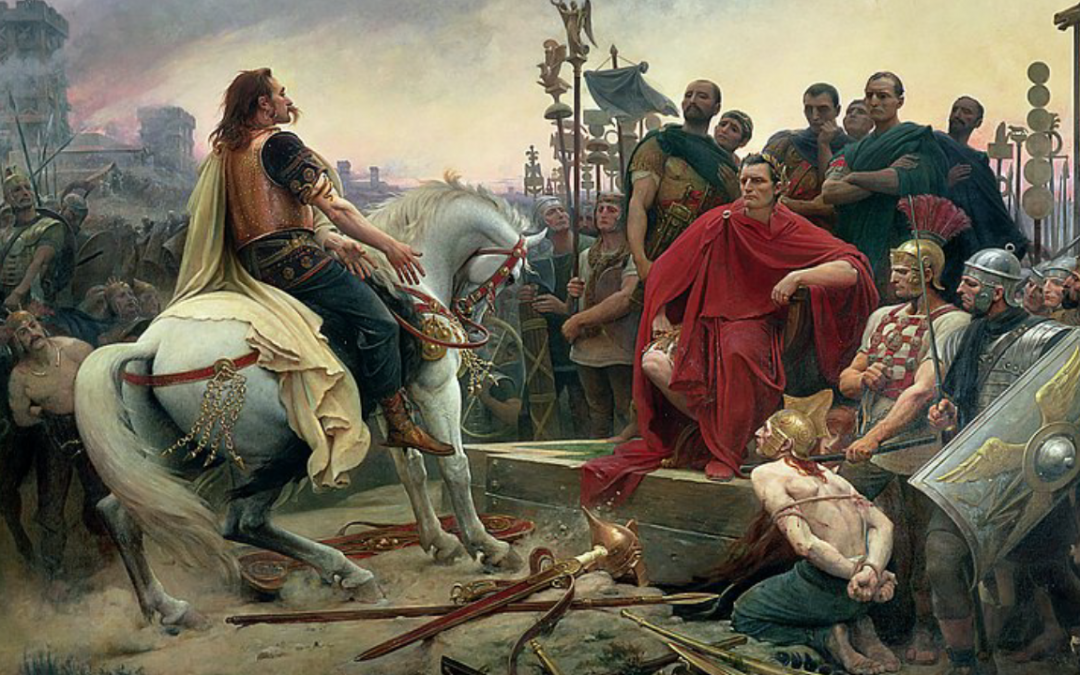It’s hard to list the greatest ancient generals in any real order. There are just so many leaders from so many kingdoms and empires of the ancient world, that just choosing ten is hard enough without having to actually rank them in order. Nevertheless I have done my best. Here are the ten I would consider the greatest military commanders of the ancient world, from Rome to Egypt to China and beyond.

Thutmose III
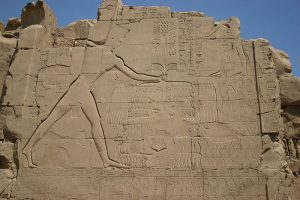
Thutmose III is remembered as “the Napoleon of Egypt” – a nickname that is not misused. In his rule as pharaoh, he never lost a battle, transforming Egypt into an empire. Gaining the thrown at a young age, he seems to have had a natural ability for military strategy. He made use of rapid campaigns, similar in many ways to the German blitzkrieg tactic of world war one. That’s why his war record is still studied in military academies today, as could be said for many of the greatest ancient generals.
Not only was he a natural strategy, Thutmose III was driven by conquest. He deeply desired expand Egypt and destroy his enemies. In 20 years he captured 350 cities in both Africa and the middle east. He would take on the enemy kingdom by targeting their weakest points. This would often take the form of attacking isolated towns and cities before moving onto more defensible areas, slowly consuming enemy land until they had been totally crushed. In the spotlight of history, Thutmose III was such a respected general that wealth Romans had monuments to him brought to Italy.

Hamilcar Barca
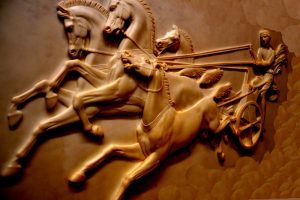
We’ve all heard of the great general Hannibal but many know little to nothing of his father, Hamilcar. Hamilcar Barca commanded the Carthaginian land armies in Sicily during the first Punic war against Rome. He was soundly defeated here but even a great general can lose sometimes. After the war he gathered a mercenary force and headed to what is now Spain. He conquered much of Spain and mined silver there, becoming rich and powerful.
Over time the mercenaries became an experienced standing army loyal to him above anyone or anything else. He would eventually die in battle, but considering what he achieved before that it’s no wonder his son Hannibal went down in history as one of the greatest ancient generals and the most fierce enemy or Rome. In fact, before his death, Hamilcar Barca made young Hannibal swear an oath that he would never be a friend to Rome.

Wu Qi
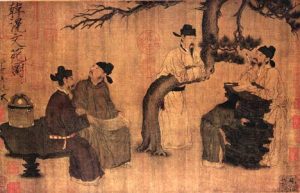
The art of war by Sun Tzu is the most famous work on warfare tactics. But the art of war is just one of 6 other books known as “the Seven Military Classics”. They are generally considered the best works on warfare in Chinese history. Another of the seven classics is Wuzi by Wu Qi. Just authoring one of the seven classics puts him among the greatest ancient generals as it’s a genuinely inspired work. But there is more to him than the theoretical side of warfare. He was born in the state of Wei but later joined the enemy state of Chu as a high ranking general.
Using that authority, Wu Qi realized that much of the state’s wealth was going towards a handful of wealthy nobles. So he purged them, moving them to the outskirts of Chu. Instead of going to them, Qi now allocated that wealth into modernizing the military. This, combined with his strategic thoughts outlined in the Wuzi, allowed Chu to win many battles – defeating rival Wei and Yue kingdoms. But purging the nobles would come back to bite Wu Qi. When the king of Chu died, the nobles took to opportunity to take his life, blitzing him with arrows. That was the end of Wu Qi.

Cyrus the Great
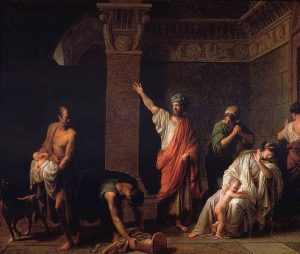
Cyrus the Great is one of just a handful of people from history who genuinely deserve to be called “the Great”. He was born in a part of what is now Iran that at the time was little more than a handful of poor tribes and clans. But he would unite those clans under his vision of conquest, building the largest empire the world had yet seen. It was the first Persian empire. Cyrus defeated a number of powerful empires and kingdoms and was able to swiftly incorporate their land under his own rule.
In time he became the king of Persia, king of Babylon, king of sumer and Akkad, king king of Media and more. He was even given the title “King of kings” – a title that would stay with every king of Persia to follow. But Cyrus was not just a great military commander. He was a great political leader and a humanitarian ahead of his time. It was Cyrus who made the oldest known declaration of human rights. He did what no other king had done, freed the jews, allowing them an equal place in his empire. Cyrus was truly loved even by those he had conquored by force. Such was his genius.

Julius Caesar
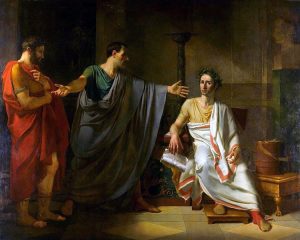
How could it be possible to write about the greatest ancient generals without giving at least a brief mention to Julius Caesar. There is a good reason Caesar remains the most esteemed general of Rome. Before gaining ultimate power his campaigns in Gaul often saw him defeat larger forces, making use of his own ingenuity. Julius Caesar was a master of the art of siege warfare, routinely building bridges and walls other structures to give his army the home field advantage even when on enemy soil.
His natural charisma was another vital tool Caesar made use of, inspiring his men to follow him anywhere. That’s why after conquering Gaul those same men followed him to Rome, where they would fight other Romans. It was a civil war they would win, seeing Julius Caesar become dictator of all Rome. That’s why every roman emperor would bear the title Caesar.

Philip II of Macedon
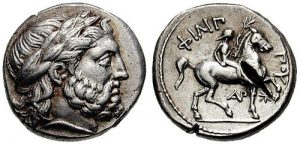
Philip II of Macedon was the father of Alexander the Great. Although his life has been heavily overshadowed by that of Alexander, his own military achievements are astronomical. In 25 years he took Macedon from a poor kingdom inhabited by sheep herders farmers and nomads to become the dominant power in Greece. Philip was a great military traction, developing an infantry formation called the Macedonian Phalanx. In the Phalanx, 256 men would be tightly pack together in a block, with long pole weapons like pikes or spears. With long pikes so close together, there was little the enemy could do to defeat it.
They couldn’t charge at a phalanx, they would be impaled instantly. Their only choice was to flank it, and attack it’s vulnerable sides. The problem is, Philip wouldn’t use the Phalanx as an offensive tactics. He used it to hold the enemy in a confined space while the Macedonian cavalry would charge. This meant if the enemy tried to flank the phalanx, they would need to break formation, thereby making them vulnerable to the cavalry charge. With this tactic, Philip conquered all of Greece. And, in fact, Alexander used the same tactic to conquer Persia and most of the known world. Much of the military genius of Alexander the Great was directly drawn from Philip II of Macedon.

Hannibal
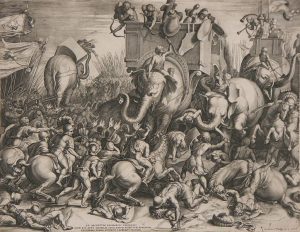
Hannibal, the beast of Carthage who for over a decade embarrassed Rome on their own soil. He came very close to actually defeating Rome in the war, rather than just some battles. Hannibal would do the last thing his enemy would expect of him, demonstrated perfectly by his march over the snow covered alps into Northern Italy. Before he did so, many said it was impossible. He was not a siege minded commander, preferring to take on his enemies in battle. He went to northern Italy because Rome’s best troops had been sent to Spain and Africa to attack Carthage, which is where they assumed Hannibal would be.
Only inexperienced troops remained in Italy to face him. Furthermore, he got to work recruiting barbarian enemies of Rome in the region, as to give him even better odds. For 13 years he led his army on Roman soil. 13 years of running rampant and doing basically whatever he wished. It was 13 years of humiliation for the great roman republic, all thanks to his shrewdness. He was a genius, and although he was ultimately defeated by Rome, the odds were always against him. It was only against an equally great general that Hannibal would lose. Why else would his tactics still be studied today at every major military academy in the world.

Scipio Africanus
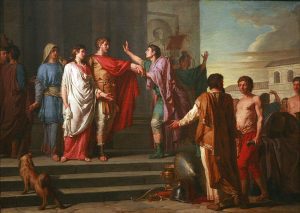
Scipio Africanus was the roman general who defeated Hannibal, and ultimately, destroyed Carthage forever. Like so many of the greatest ancient generals he learned from his rival. Observing how Hannibal operated and only fought battles that would put roman forces at a disadvantage, he would not meet the enemy in battle unless it was at Hannibal’s disadvantage. Scipio was willing to wait years of not engaging Hannibal if that’s what it would take to finally get him off guard. Because of this, Scipio Africanus never lost a battle. He was truly the greatest general Rome ever birthed.
First, Scipio defeated Hannibal’s brother Mago, the ruler of Carthaginian Spain. It was he who conceived the actual strategy Rome used to crush Carthage, the only other super power of the Mediterranean sea. In 202 BC he traveled to Carthage and took on Hannibal in battle. Despite being outnumbered, Scipio used Rome’s strong cavalry to flank Hannibal and attack the Carthaginian force from their unprotected rear. He also carefully trained his infantry to avoid the war elephants Hannibal predictably deployed at the start of the battle. Scipio had defeated Hannibal and Carthage was forced to surrender. This is what earned him the name Africanus.

Alexander the great
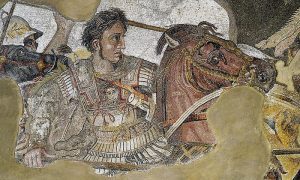
Of course Alexander of Macedon was one of the greatest ancient generals. I already included his father, how could I neglect the son who conquered most of the known world before turning 30. His achievements would be what other great conquerors measured themselves against. For centuries after, great kings and generals would visit his tomb and pay tribute to him. His victories spanned 22 thousand miles. Many of such victories would see Alexander risk his own life to secure glory. Using Phalanx and cavalry, like his father taught him, he destroyed the Persian empire in open battle. When open battle wasn’t an option, he laid siege to cities. When deciding to capture a city, he would dedicate his forces solely to that.
Alexander was willing to wait years just to capture a single town or city that was of strategic importance. Perhaps his greatest siege was that of Tyre, a port city on a small island. Tyre was determined not to surrender to Alexander. It was from Tyre that the Persian navy resupplied. His only option was to capture it. Tyre was the most wealthy and respected Persian naval base. In fact, it was the last major Persian naval base. Take it, and Persia would only have land forces. And no land army could face the Macedonian phalanx and survive. For seven months he blockaded Tyre, starving them.
But he didn’t have enough ships to besiege the city fully. So he built a bridge. He literally built a bridge to the island and brought siege weapons close enough to Tyre to break through it’s walls. He took Tyre, killed all of it’s soldiers and sold all of it’s civilians into slavery as a message to other cities considering resisting his invasions. With Tyre gone and the Persian fleet useless, Alexander conquered the Levant and Egypt.

Sun Tsu
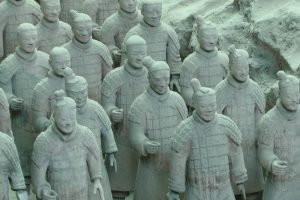
Sun Tsu just read the art of war and you’ll see why Sun Tsu is our number one. In fact, countless of the greatest ancient generals of china followed the teachings of Sun Tsu. But just like Wu Qi, he was so much more than just his teachings. Sun Tsu had an impressive personal military record. On becoming a general of the state of Wu, he won many battles against enemies with far greater numbers. One of such was the battle of Boju, where his 30 thousand strong force defeated a force of 200 and 300 thousand. Immediately after the war, that enemy state’s capital was captured and destroyed, completely crushing the enemy – one of the lessons of the art of war.

